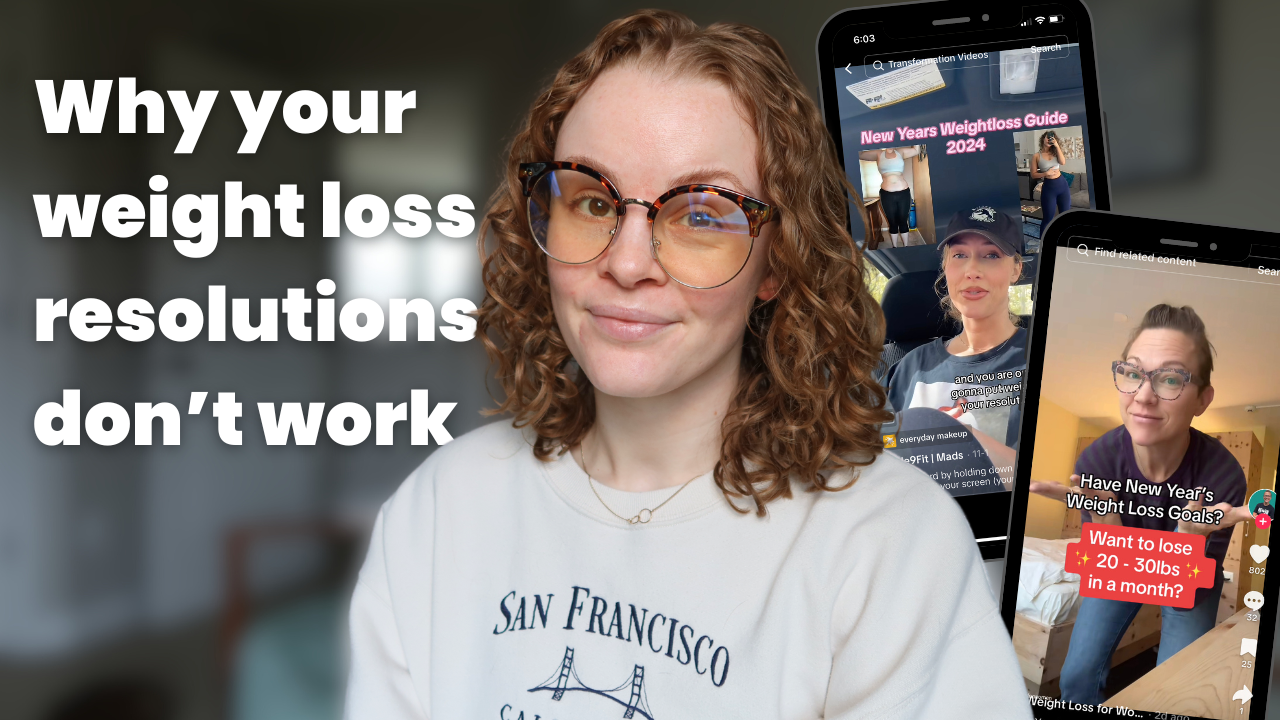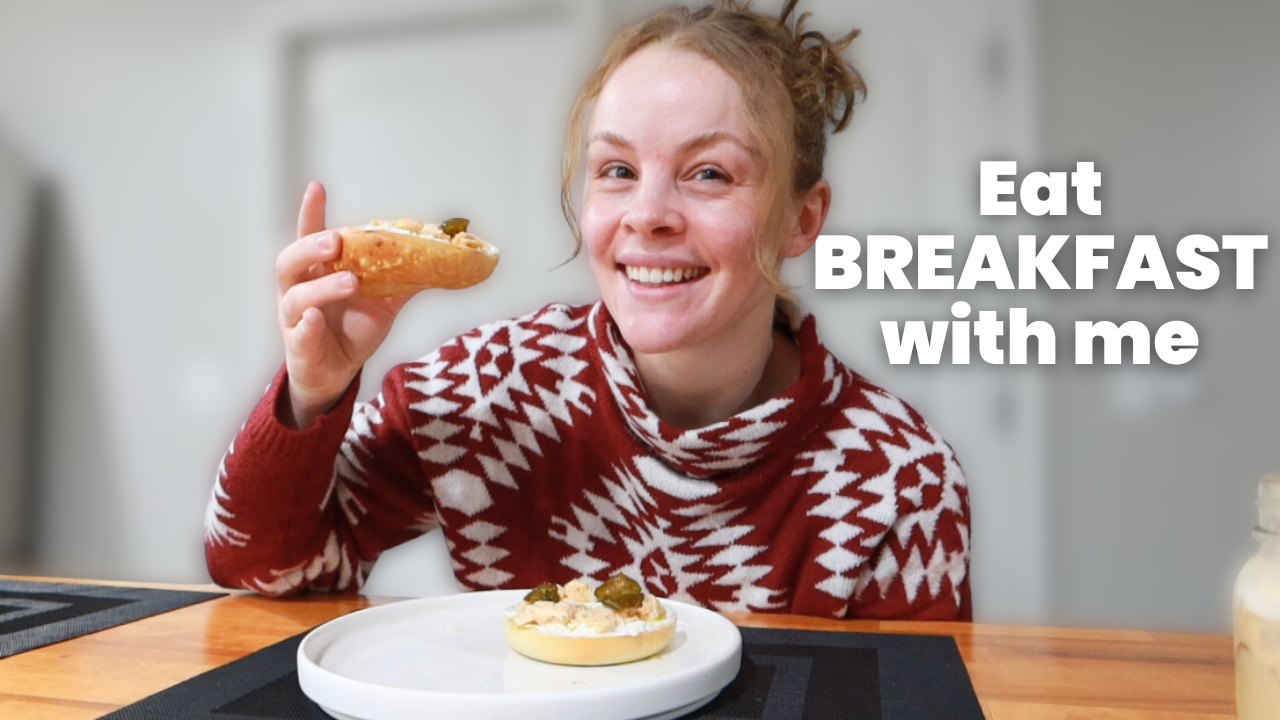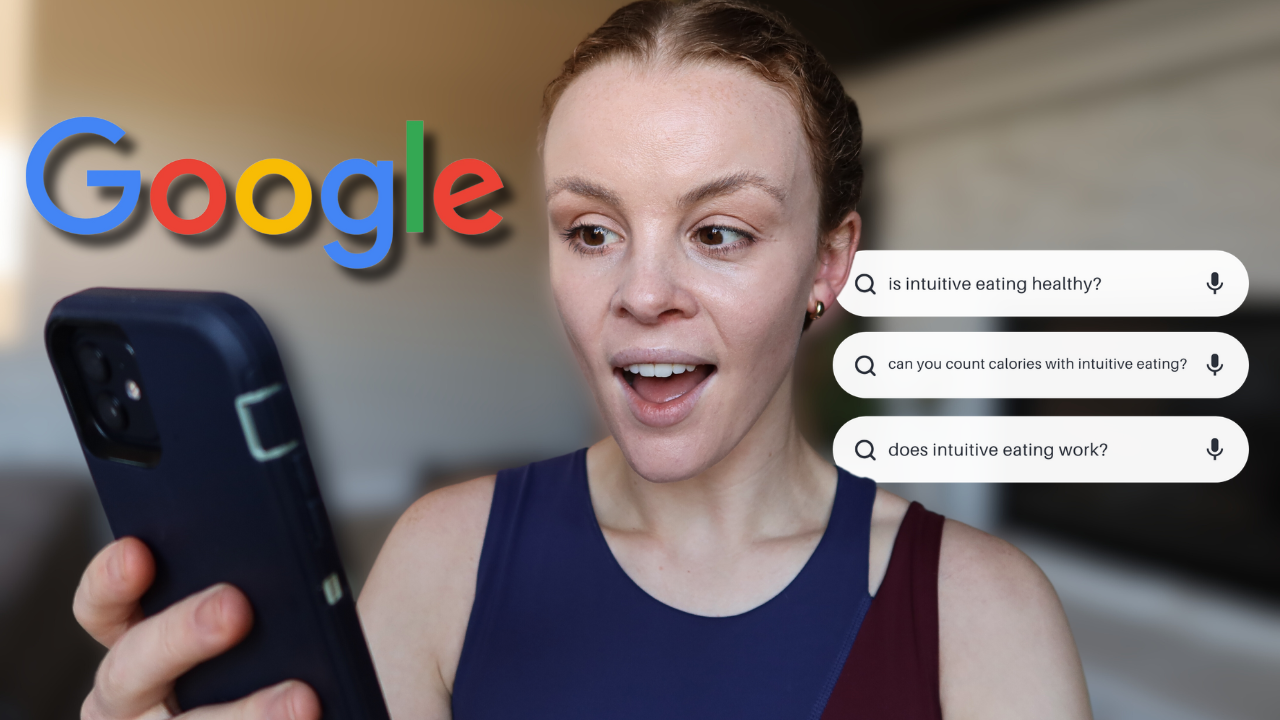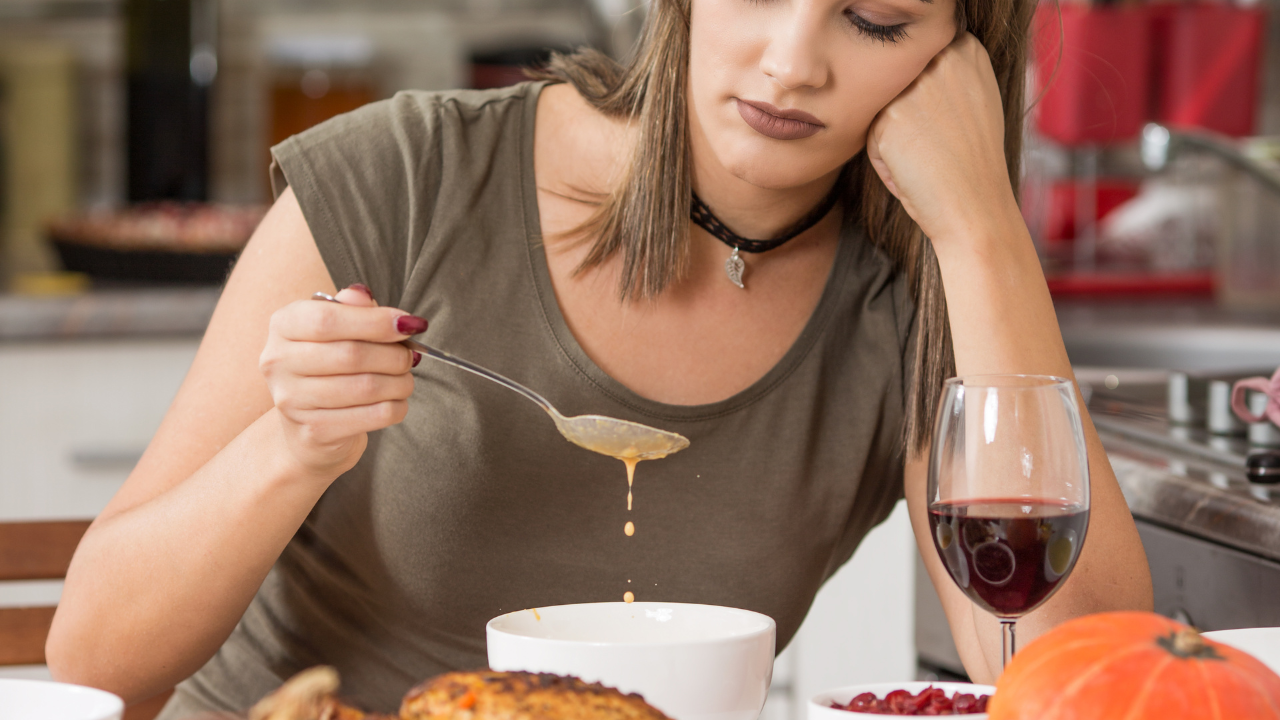Challenge the Food Police - Intuitive Eating Principle 4
DISCLAIMER: Links included in this blog might be affiliate links. Health with Hannah, LLC is a participant in the Amazon Services LLC Associates Program along with other affiliate programs. If you purchase a product or service with the links that I provide I may receive a small commission with no additional charge to you. Thank you for your support!
Food guilt is everywhere. From “think thin” and “reduced guilt” labels on food packages to being food shamed by strangers on the internet or even medical professionals, it’s no wonder we sometimes feel remorse after eating.
In the world of diet culture, food talk (especially negative food talk) is pervasive. It doesn’t help that many people have no issue giving unsolicited nutrition advice. Everybody eats, so many people believe that qualifies them to tell others what to eat.
As a result of diet culture and all that it entails, inaccurate food thoughts prevail in our minds. Thought such as "carbs are fattening" or “I shouldn't eat after 6 pm" might cross your mind from time to time. These thoughts can be very damaging to our relationship with food.
Challenge the food police is the fourth principle of a framework known as Intuitive Eating. If you’d like to learn more about the first three priciples, check out these posts:
What is intuitive eating?
Intuitive eating is a non-diet approach to eating that was developed by two registered dietitians, Evelyn Tribole and Elyse Resch. There are 10 principles of intuitive eating with a goal of helping you improve your relationship with food and your body.
Reject the diet mentality
Honor your hunger
Make peace with food
Challenge the food police
Discover the satisfaction factor
Feel your fullness
Cope with your emotions with kindness
Respect your body
Movement - feel the difference
Honor your health - gentle nutrition
New to intuitive eating and want to learn more? Check out this blog post.
The voices behind food talk
The Intuitive Eating book outlines 6 different voices that may be leading the food talk. Let’s discuss these voices and where they stem from.
The Food Police
The Food Police is a strong voice developed by dieting and diet culture. It is the sum off all your dieting and food rules. The Food Police determines if you are doing "good" or "bad" based on your food choices.
Some common rules from the Food Police:
Don't eat past 6 pm.
It's not time for lunch yet so you can't eat.
You ate too much yesterday so you need to skip breakfast.
Better not eat that sandwich - too many carbs.
Even when you reject the diet mentality and begin to make peace with food, the Food Police will still make reappearances.
The Nutrition Informant
This voice provides nutrition information to keep you in line with dieting and diet culture. The Nutrition Informant makes statements like:
Don't eat canola oil, it's inflammatory.
Be sure to check those macros!
Only choose organic produce.
This voice is subtle and it often seems like it is in your best interest for "health". Because of this, it can be difficult to identify the voice of The Nutrition Informant.
This voice becomes the Nutrition Ally when the Food Police is removed. The Nutrition Ally is a voice that is interested in health with no hidden agenda like The Nutrition Informant!
The Diet Rebel
This voice sounds angry and determined. It may say things like:
Now that mom and dad are asleep, I can go downstairs and eat those chips that are in the pantry.
You're not going to get me to eat those raw vegetables!
I wonder how many of these brownies I can eat before my partner gets home.
Ultimately, this is a form of acting out as a result of feeling too scared to confront where these voices are coming from. You can turn your Diet Rebel into the Rebel Ally! Use the energy to protect your boundaries. Try saying things like "please don't push that dessert onto me. I am full, thank you."
The Food Anthropologist
A neutral observer, this voice makes observations without making judgements. This voice will help pave the way to Intuitive Eating. Observational statements may include:
I didn't eat lunch today and was very hungry at dinner time.
I ate 3 donuts that were brough into the office (no shaming, just facts).
I felt guilty after I ate out of boredom (not condescending, just an observation of feelings).
The Nurturer
The Nurturer is a compassionate and gentle voice will reassure you that you're doing okay. It is the vehicle for positive self talk, which we’ll talk more about later. Some messages you may hear from this voice:
Taking up less space does not make me more valuable.
It's okay to have a bagel for breakfast.
I am doing so well! I only ate past fullness once this week and I forgive myself for doing that. There's a reason it happened!
The Nurturer will be there to help you challenge the food police and support you on your intuitive eating journey.
The Intuitive Eater
The Intuitive Eater is a compilation of the positive voices of the Food Anthropologist and the Nurturer as well as the Nutrition Ally and Rebel Ally. The Intuitive Eater voice might say:
I'm starting to get brain fog. This means I need to step away from my computer and eat lunch.
What should I make for dinners this week? What sounds good? What haven't I had in a while?
I still have food on my plate, but I am satisfied. I'll save the rest for tomorrow.
When you have reached the final stages on your journey to become an intuitive eater, this voice will prevail most of the time.
Self-talk
Identifying the voice behind the food talk is necessary for challenging the food police. But there needs to be more ammunition - this is where positive self-talk comes in. Self-talk is thought processes that become internalized sentences. As the name implies, it is the way we talk to ourselves. According to psychotherapists, if we change our beliefs, this will impact our feelings which will impact our behaviors.
Challenging negative self-talk
In order to get rid of diet thoughts, you first need to identify them. Ask yourself:
Am I having repetitive and intense feelings?
What am I thinking that's leading me to feel this way?
What is correct about this belief? What is false?
Use your Food Anthropologist voice here.
Once you identify the distorted belief, replace them with a more reasonable one. Here’s an example:
Negative belief: “Whenever I eat donuts I feel terrible. I crash and feel exhausted an hour after I eat them. I can never eat donuts."
How to reframe the thought: "Eating donuts on their own is not enough protein. I know if I eat simple carbs on their own I don't feel well. I'll try to add a protein source whenever I have donuts."
Bottom line
Challenge the Food Police is the fourth principle of intuitive eating. By understanding and challenging the food voices in our mind and from external sources, we can start to build a more positive relationship with food.
Looking for more support? We’d love to guide you inside The Nutrition Reboot Membership.
Up next
Principle 5 - Discover the Satisfaction Factor
Watch my intuitive eating videos
Want more help on your intuitive eating journey?
Join my membership to become part of a community of ex-dieters working towards food freedom and making peace with food so they no longer need to cut out their favorite foods.






























































